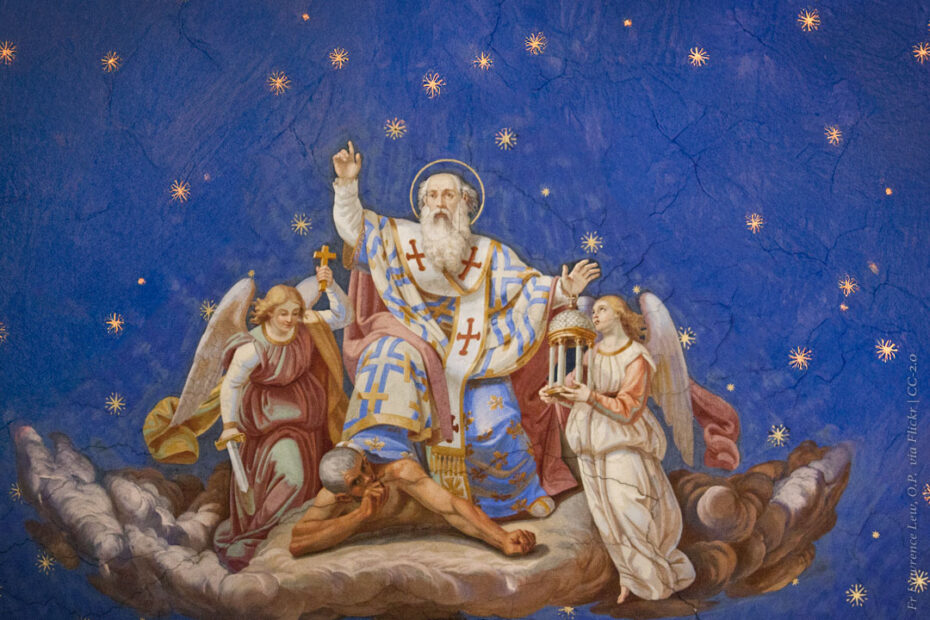By Judie Brown
Contra mundum means to stand against the world and/or in defiance of popular opinion. One of the most beloved Catholic saints, Athanasius, embodies the meaning of that Latin phrase and perhaps most importantly represents the position we take when we defend Truth regardless of public opinion.
It has been written that “in and out of season, Athanasius followed our Lord.” Like this great saint, we do not seek popularity but rather absolute protection for the human person at every stage of his life—from single cell until death.
For the . . . right understanding of the Scriptures there is need of a good life and a pure soul, and for Christian virtue to guide the mind to grasp, so far as human nature can, the truth concerning God the Word. One cannot possibly understand the teaching of the saints unless one has a pure mind and is trying to imitate their life. . . . Anyone who wishes to understand the mind of the sacred writers must first cleanse his own life, and approach the saints by copying their deeds. Thus united to them in the fellowship of life, he will both understand the things revealed to them by God and, thenceforth escaping the peril that threatens sinners in the judgment, will receive that which is laid up for the saints in the kingdom of heaven.
While these words were written more than sixteen hundred years ago, they are worth studying in view of the crisis that confronts people of good will, including those who claim to be Catholic.
To underscore this point, one need only look to Bishop Michael McGovern, the papal appointment to the position of leader for the Archdiocese of Oklahoma. In 2021, McGovern joined several of his fellow bishops in signing a letter asking that the question of pro-abortion politicians and obedience to Canon 915 not be discussed. Now, four years later, most of the bishops are still avoiding their obligation to defend Christ from sacrilege.
Lest we forget, those ordained priests, including bishops, who fail to obey Canon 915 have chosen to ignore Saint John Paul II. Cardinal Burke explained that the pontiff made it clear “that the norm of Can. 915 is required by the Church’s teaching on the respect due to the Most Blessed Sacrament and her concern to avoid scandal in the community.”
Father John Hardon’s words underscore this: “The secret of professing our hope in Christ’s promises is to believe Jesus is here in this valley of tears, precisely to enable us in coping with the trials of life and trusting that He will not abandon us. This is exactly what the Real Presence means. It means God became man, and the Incarnate God is now here with us to reassure us that we are not alone.”
Considering what is required of us as children of God who must stand against the world whenever contradiction occurs, we pray for wisdom and courage. We believe that the real presence of Christ in the Eucharist should lead people of faith to acknowledge the real presence of the preborn child at every stage of her development.
We cannot see the body of Christ, but we believe that He is truly present.
Without the use of medical technology, we cannot see the developing child during pregnancy, but we know a person is growing within her mother.
And while some suggest that such matters are confusing or merely opinion, we turn to the wisdom of Saint Athanasius to respond: “The demons . . . first make an attack by temptation and place hindrances to hamper our way, to wit, evil thoughts. But we need not fear their suggestions, for by prayer, fasting, and faith in the Lord their attack immediately fails.”
As the writer John Piper once said, “Athanasius would have us learn from his life and the life of his heroes this lesson: even if at times it may feel as though we are alone contra mundum, let us stand courageous and out-rejoice our adversaries.”
